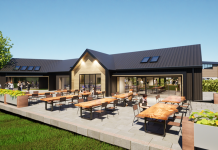The last two years has witnessed an unprecedented number of public house closures. In 2010 the closure rate peaked at 52 pubs per week, but slowed to 25 per week in 2011, but the result was a dramatically reduced number of public houses in the UK, now standing at around 52,000. The majority of pubs that closed are owned by the larger pub companies who have found it difficult to find new tenants for these pubs once vacant.
Rationalisation
Underperforming pubs have invariably found themselves in the “turnaround division” as pub companies look to consolidate their estates, disposing of the poorer performing operations to focus on enhancing the value of the better performing pubs and restaurants.
Tough Trading Conditions
The impact of the smoking ban, whilst noticeable, has paled beside the impact of the ongoing economic recession, coupled with the availability of cheap supermarket alcohol. Increasing overheads at an operational level have also continued to have a significantly adverse impact.
However, it isn’t all doom and gloom. There are quality trading houses throughout the southern region that have maintained turnover and profitability levels during the economic downturn by ensuring standards are maintained and appropriate business strategies adopted. Operators recognise the importance of a diversified income stream, including a good food operation and where possible, the provision of letting rooms.
Transaction Levels
The number of “bottom end” freehold pubs being sold across the south has slowed down in the past few months as pub companies have identified the region as an area where values have remained steady in comparison with other parts of the country such as the Midlands, North and South Wales.
Dan Dempsey, Valuation Surveyor at CBRE comments: “Pubs that are coming to the market are seeing interest from developers and investors seeking to re-develop whole or part of the site for alternative end uses including residential, care homes, nurseries and convenience stores. This increasing interest in regional pubs has prompted competitive bidding scenarios and higher than expected sales figures in many cases. As a result outdated and poor quality premises are being replaced by higher and better uses more in demand in densely populated areas in particular.”
Some examples that CBRE has been involved with include the recent sale of two closed and boarded pubs in Hampshire including Madeleine’s in Gosport and The Woodman in Southampton. Each pub was subject to a proposed lease agreement to Tesco Stores Ltd and was sold at auction for values in excess of three times their book value as a public house. This illustrates that the alternative use value, in this case the investment value created out of the lease to Tesco, could be significantly greater than the value of a closed and boarded pub.
What Makes a Great Pub?
Why do some pubs do so well, whilst others in the same area fail repeatedly? The answer is complex, but great pubs will possess many of the key attributes associated with the licensed leisure industry: strong management, a great food and beverage offering, separate drinking only areas, attractive location, good parking provision and in some cases accommodation provision.
Think of a favourite pub and there is a strong probability that its goodwill and reputation will have been founded on the possession of many if not all of these important attributes, with a pricing structure and policy closely aligned to its target customer base. Conversely failing pubs will often fall short on too many counts. Of all of the success factors, quality management is paramount as it facilitates the other important elements.
Pub companies with professional management do not need to be told which of their bubs are trading well – their success is self-evident in financial terms. They do, however, on occasion require strategic input when re-sizing and/or re-shaping of portfolios is envisaged, and a clear understanding of underlying alternative use values is required.
CBRE Specialist Markets
CBRE helps to provide carefully structured plans to realise the potential in underperforming public houses as it offers a broad range of professional services including valuation and rating advice, building surveys, strategic reviews and disposal strategies.


















